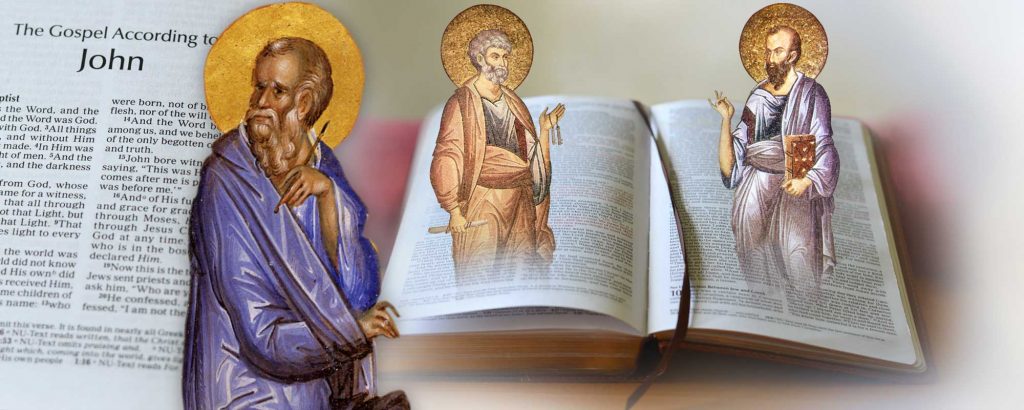
“I am an Orthodox Christian, but not a believer”
Dear C.,
Some time back we had a phone conversation about our faith and our hope in the risen Lord. Although you've been an Orthodox Christian all your life and are active in your church, you dismissed it all. It seems that to you “being good and doing good” is all that counts. Of course, you are to be commended for the good you have done all your life, and for what you continue to do; however, stating that you believe in God, as you do, is not enough—not for us, Orthodox Christians anyhow. If you had never heard about Jesus Christ, if you had not grown up in the Church, if you had never received the holy sacraments and instruction over the years, one could say that you are excused. However, since you don't have this defense, it is incumbent on you to confess the faith of the Church and to live a Christian life, in accordance with the commandments of the Lord. Still more, you dismiss the historicity of Jesus Christ and His resurrection from the dead – the foundations of our faith as Christians – as paramythia, “idle tales”. They are not made up, as you state, but are historical facts. I know that you, like your husband, are scientists and therefore your mind needs facts. I intend to provide these to you for your examination.
Since you are not up to reading the holy scripture right now, I will direct you to at least a few biblical passages which are historical accounts of eyewitnesses of Jesus Christ and of His resurrection, hoping that you'll give them serious consideration. I hope these passages will urge you to read the entire holy scripture, so that, by God's grace, you will regain your faith. I care more for you, because you have been a good friend over many years.
Historical, eyewitness accounts of Jesus Christ and His Resurrection
The quotations below are from three eyewitnesses, the holy Apostles Paul, Peter and John, according to the approximate date in which the texts were written. With one exception, I have not commented on these passages, leaving it up to you to draw your own conclusions.
The first author, Paul of Tarsus (better known as “Saint Paul”), was not even one of Christ's chosen 12 disciples. So how is he said to be an eyewitness of the Lord and of His resurrection? We'll let him answer this question himself... But first, I would like to point out that Paul was an educated man, having been a pupil of the illustrious teacher of Jewish law, Gamaliel, who was a Pharisee (a specialist in the Laws given through Moses – a theologian more than a lawyer). Paul too became a Pharisee. He was also proud to be a Roman citizen from birth. He went from being a zealous persecutor of the Church to become its leading missionary, who preached Christ as God to the non-Jews, the Greeks.
Paul's conversion is narrated by his later missionary companion Luke (cf. 2 Tim. 4:11), whom he called “the beloved physician” (Col. 4:14) and “my co-worker” (Philem. 24), in his letters. St. Luke followed the Apostle Paul, as we see in the Acts of the Apostles, chapter 9, when he begins narrating the events in the first person plural. According to solid tradition, Luke is also the author of the book in the Bible that carries his name, “The Gospel According to Luke”. He introduces what he wrote about Jesus' life, calling it “an orderly account” (Lk. 1:3) so that we “may know the full truth about everything which you have been taught” (Lk. 1:4). This is precisely the purpose I write these words to you, dear C., hoping that you will be convinced about the truthfulness of what they have written, and that you too will become a believer.
I've marked in red the most pertinent passages, and in bold, words to which you should give special attention. The translations are those that I had handy. (Since you are a Greek language teacher and you know it well, it would be good for you to also look up and read the following passages in the original Greek as well, your maternal language that speaks more to your heart.)
1) PAUL (+c. 64 AD)
LETTER TO THE GALATIANS (c. 52-55 AD)
(To the Hellenized people of Galatia who had become Christians)
Chapter 1
LETTER TO THE ROMANS (c. 58 AD)
(To the Christians living in Rome)
CHAPTER 1
FIRST LETTER TO THE CORINTHIANS (c. 53-57 AD)
(To the Christians living in Corinth)
CHAPTER 15
The appearance of Christ to over 500 people, who witnessed the Lord's resurrection, is a startling revelation. Although unique, we must not doubt the Apostle's word that he probably knew and met a number of them. A full analysis of this testimony is given here.
ACTS OF THE APOSTLES (c. 70 AD)
(Written by Luke the Evangelist, much of which is about Paul's “acts”)
CHAPTER 9
"Yes, Lord," he answered. 11 The Lord told him, "Go to the house of Judas on Straight Street and ask for a man from Tarsus named Saul, for he is praying. 12 In a vision he has seen a man named Ananias come and place his hands on him to restore his sight." 13 "Lord," Ananias answered, "I have heard many reports about this man and all the harm he has done to your holy people in Jerusalem. 14 And he has come here with authority from the chief priests to arrest all who call on your name." 15 But the Lord said to Ananias, "Go! This man is my chosen instrument to proclaim my name to the Gentiles and their kings and to the people of Israel. 16 I will show him how much he must suffer for my name." 17 Then Ananias went to the house and entered it. Placing his hands on Saul, he said, "Brother Saul, the Lord—Jesus, who appeared to you on the road as you were coming here—has sent me so that you may see again and be filled with the Holy Spirit." 18 Immediately, something like scales fell from Saul's eyes, and he could see again. He got up and was baptized, 19 and after taking some food, he regained his strength. Saul spent several days with the disciples in Damascus. 20 At once he began to preach in the synagogues that Jesus is the Son of God. 21 All those who heard him were astonished and asked, "Isn't he the man who raised havoc in Jerusalem among those who call on this name? And hasn't he come here to take them as prisoners to the chief priests?" 22 Yet Saul grew more and more powerful and baffled the Jews living in Damascus by proving that Jesus is the Messiah.
CHAPTER 22
(Paul's words, recounted by Luke)
'I am Jesus of Nazareth, whom you are persecuting,' he replied. 9 My companions saw the light, but they did not understand the voice of Him who was speaking to me. 10 'What shall I do, Lord?' I asked.
'Get up,' the Lord said, 'and go into Damascus. There you will be told all that you have been assigned to do.' 11 My companions led me by the hand into Damascus, because the brilliance of the light had blinded me." 12 "A man named Ananias came to see me. He was a devout observer of the law and highly respected by all the Jews living there. 13 He stood beside me and said, 'Brother Saul, receive your sight!' And at that very moment I was able to see Him. 14 Then he said: 'The God of our ancestors has chosen you to know his will and to see the Righteous One and to hear words from His mouth. 15 You will be His witness to all people of what you have seen and heard. 16 And now what are you waiting for? Get up, be baptized and wash your sins away, calling on His name.'"
CHAPTER 26
(Paul giving a defense of his faith before King Agrippa (AD 27/28 – c. 92 or 100), as narrated by Luke)
2) PETER (+ c. 64 AD)
ACTS OF THE APOSTLES (c. 70 AD)
CHAPTER 2
CHAPTER 3
CHAPTER 4
CHAPTER 5
ST PETER'S FIRST UNIVERSAL LETTER (1 PETER) (c. 63 AD)
CHAPTER 5
ST. PETER'S SECOND UNIVERSAL LETTER (2 PETER) (c. 64 AD)
CHAPTER 1
3) JOHN THE APOSTLE, EVANGELIST, THEOLOGIAN (+ c. 95 AD)
THE GOSPEL ACCORDING TO ST JOHN (c. 90 AD)
CHAPTER 1
CHAPTER 3
CHAPTER 20
ST JOHN'S FIRST UNIVERSAL LETTER (c. 90 AD)
CHAPTER 1
CHAPTER 2
CHAPTER 3
CHAPTER 4
CHAPTER 5
My Comments
Please bear in mind, dear C., that the selections from the historical documents quoted above were written 20 to 60 years after the death and resurrection of Jesus Christ by eyewitnesses of the events they describe. They have been preserved by His followers and guarded with their own lives — in many cases quite literally. Therefore anyone who questions their authenticity should consider that we accept other historical figures without question.
For example, if we examine the historicity of Alexander the Great, what historical documents will we find that narrate the events of his life? The earliest source is the historian Callisthenes who accompanied Alexander, but his unfinished history Deeds of Alexander (327 BC) is lost to us. Cleitarchus wrote his History of Alexander (c. 300 BC), and Ptolemy, Alexander's general, also wrote his Memoirs of Alexander's campaign at about the same time, but both of these accounts are lost as well. The writings of Aristoboulos, Onesicritus and Nearchus, officials of Alexander, had the same fate. Diodorus's The Library of History is the oldest surviving source (c. 35-30 BC), written some 290 years after Alexander's death, followed by the History of Alexander the Great, written by Quintus Curtius Rufus c. 30 AD (353 years after Alexander's death). For the most part we rely on the accounts of Plutarch's Parallel Lives (written during the last 10 years of his life (died 125 AD), some 448 years after Alexander's death) and Arrian's Anabasis, written about 20 years later (c. 145 AD). The latter is the most reliable source of Alexander's life and deeds. The recently discovered Astronomical Diary is the only contemporary source on Alexander, which places his death on June 11, 323 BC. (See other online sources, including, this source)
The accounts of the eyewitnesses presented here, as well as of the other writers of the New Testament, which include names of places, people and events, have been confirmed by archeological findings. For example, Paul's tomb with his relics were discovered during excavations. Archeologists confirmed it was the tomb of Apostle Paul in 2005 (See https://en.wikipedia.org/wiki/Paul_the_Apostle). The universal acceptance of the New Testament writings and the universal transmission of Baptism and Eucharist are also a testament to the authenticity of the texts. These are not cleverly devised myths, but true and real historical accounts, therefore to deny them would show a lack of good will.
Faith is not a conviction based on unproven stories, or on private, baseless convictions that have no security. This is how St. Paul describes faith:
Faith gives us assurance, a certainty of things we hope for; faith convinces us about things we have not seen ourselves, that we have not experienced with our own senses, but we believe in them based on the witness of others. We have not seen Jesus Christ, we have had no first-hand knowledge of His life and His deeds, we did not see Him die and rise from the dead, neither has He appeared to us. Yet we have a certainty about these things, based on the testimony of those who have seen Him, and all the marvelous things they describe. Our faith is not based on falsehood nor is it in vain. Why does having faith in Christ matter? We believe, because by doing so we receive the blessing of the Lord, who said: “Blessed are those who have not seen and yet believe.” (John 20:29)
The conclusion we draw from all this is that we need to strengthen our faith in Christ, that He is the Son of God in the flesh, that He became human so that we could become divine, that He freed us from sin, suffering and death with His death and resurrection from the dead, that He will come again in glory to raise us from death and grant us His life – as long as we remain united with Him and live His life, a life of complete obedience to God.
We set our hopes in our Savior. We hope and trust we won't be disappointed: “Glory to You, O Lord and God, our hope, glory to You.”
Fr. Emmanuel Hatzidakis
3-18-2019
(edited by AH, 9-2022)
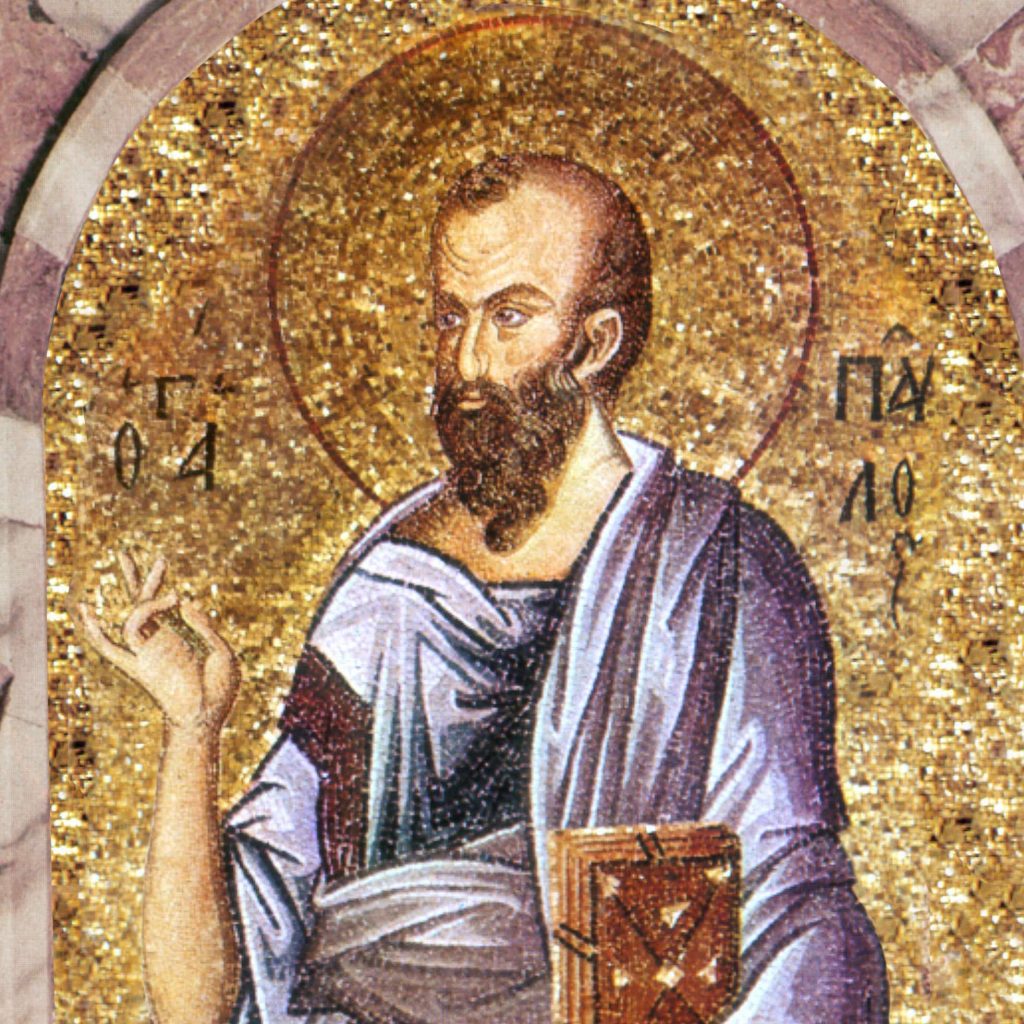

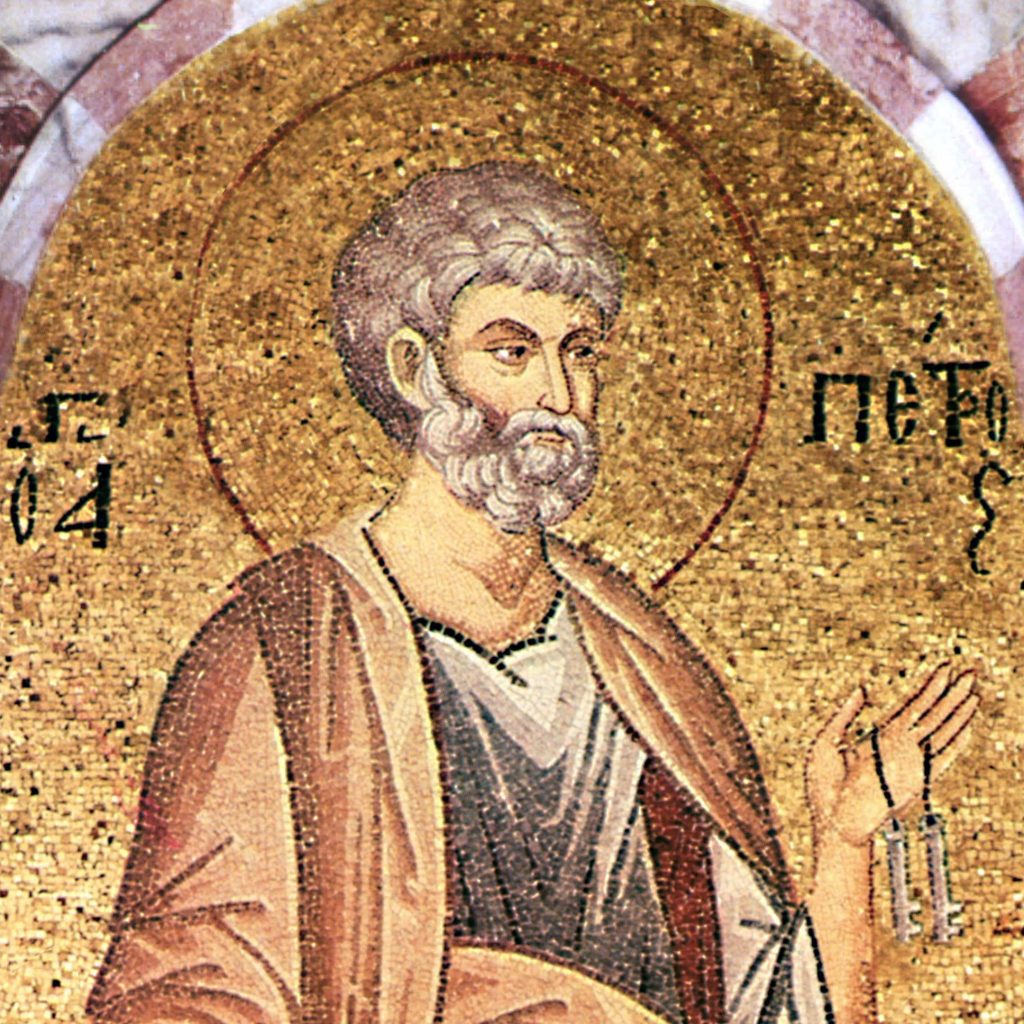
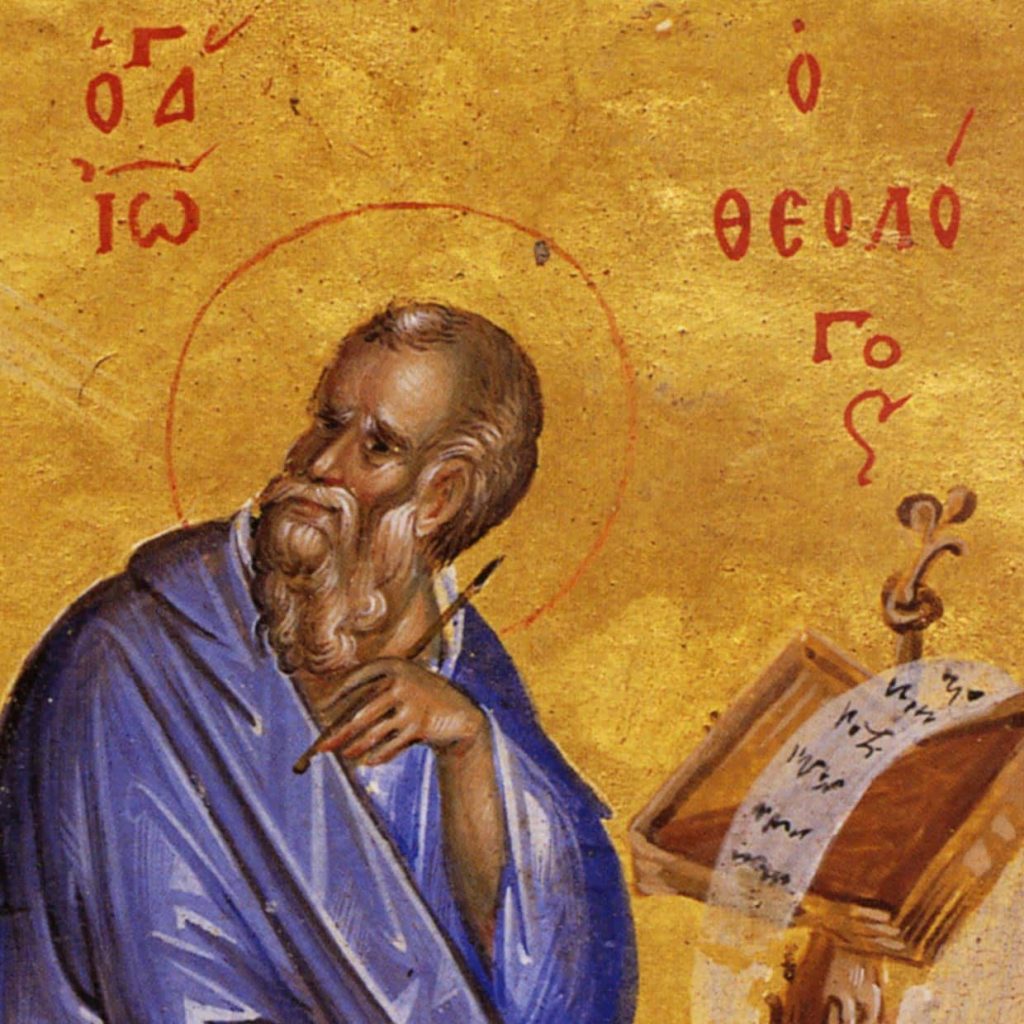



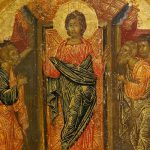
Your answer to your friend is excellent as is your use of the Holy Scriptures. However, I have to ask myself how a man who calls himself a life-long Orthodox Christian can possibly say that and yet state that he is not a believer! Could this be because he identifies as Orthodox because he is Greek or Greek-American? Has he confused ethnicity with Christianity? This reminds one of that scene in the movie “My Big, Fat Greek Wedding” when the man who is the future spouse of the Greek-American woman is baptized and, upon rising up from the baptismal font declares “I’m Greek now!” This kind of confusion – unfortunately often abetted by some of the clergy – is typical of “ethnic Orthodox” especially, I’m sorry to say, of Greek origin. A great deal of theological education and spiritual formation is needed here!